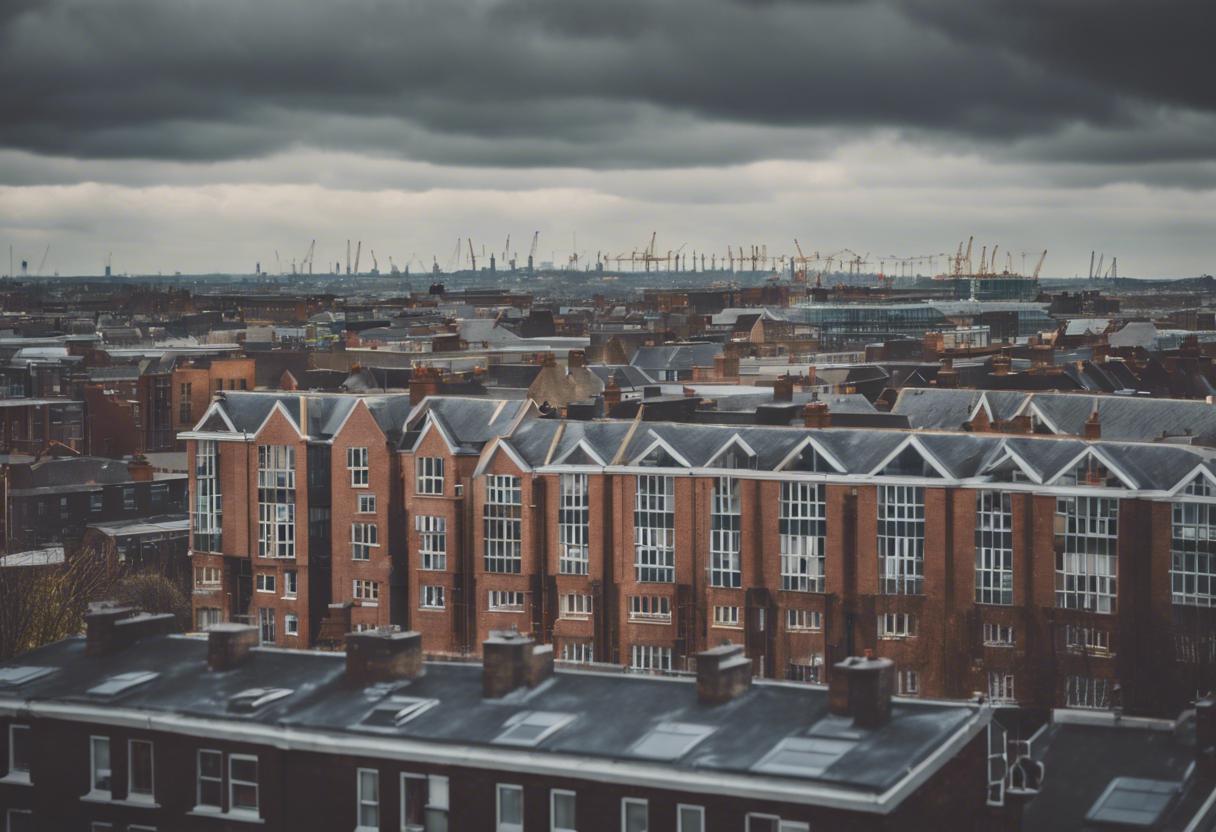The Taoiseach’s Taskforce for Dublin has released a €1 billion strategy aimed at reviving the city, which features 10 key suggestions, including assigning an additional 1,000 police officers to patrol the streets of Dublin city, increasing the availability of housing in the urban centre, and managing charitable organisations that provide tents to the homeless.
According to the report unveiled on Monday, these directives aim to boost the urban living population, enhance the cleanliness and security of the streets, and foster a lively, constantly active city scene. The taskforce was set up last May by Taoiseach Simon Harris after city-centre riots, fomented by extreme right-wing instigators, erupted following a distressing incident which saw the knifing of three children and their carer in Parnell Square in November 2023.
The taskforce, headed by An Post CEO David McRedmond, has proposed these 10 significant steps towards creating a safer, friendlier, and better-maintained city. The chief proposition includes the stationing of an additional 1,000 members of the gardaí in Dublin 1 and Dublin 2 localities, a number that, McRedmond confirmed, was supported by An Garda Síochána. The proposed allocation of these extra roles should be progressively implemented over three years. Additionally, the plan suggests that duties not pertinent to law enforcement should be transferred from the gardaí to other relevant agencies at a faster pace.
Among additional safety and policing recommendations are: bolstering private security presence on public transport and expanding their remits; instating a city warden scheme to deal with littering and disruptive behaviour; implementing laws to prevent social media platforms from distributing video footage of the gardaí on duty; and shifting the location of the Dublin O’Connell Street Garda station to the General Post Office (GPO), while conceptualising a long-term utilisation plan for the GPO.
The task force suggests that the GPO should undergo a transformation to become a significant public facility as part of O’Connell Street’s rejuvenation initiatives. Various suggestions have been made for the GPO’s future, including moving RTÉ there, turning it into a government office, or establishing a museum. Although the task force has not specified the preferred option, it urges the Government to decide its fate by the end of the upcoming March.
Aside from GPO’s transformation, the task force also encourages improvements for O’Connell Street and adjacent areas. This includes addressing issues of neglect and vacancy, conducting rubbish clearance, and encouraging pedestrian and bicycle use.
Moving on to broader city centre concerns, the task force stresses the importance of implementing the City Centre Transport Plan, aiming to regulate private vehicles on the quays quickly. Moreover, the issues of neglect and vacancy are included in the proposals to increase city housing. The recommendations highlight converting unused premises into residences, with an emphasis on housing for key workers such as policemen and nurses. Regeneration of city’s social housing should also be a priority, with the city council fully financed by the treasury in advance.
The task force’s report underscores the need for strategies to assist the city’s “vulnerable populations” so that emergency shelters and processing centres “are more widely distributed” across greater Dublin. The enactment of bye-laws to regulate “on-street charitable services” was also recommended, which despite their good intentions, have reportedly exacerbated social problems and compromised “dignity” by supplying tents and other facilities.
The report estimates that the initiatives will cost approximately €1 billion, with annual operational costs ranging from €100 to €150 million. Potential funding options might include a tourist levy or congestion charges. Upon the report’s release, Mr Harris stated that while the financial implications “were very large,” it was an “achievable level of investment.” He expressed his opposition to congestion charges but left the door open for a possible tourist tax.

